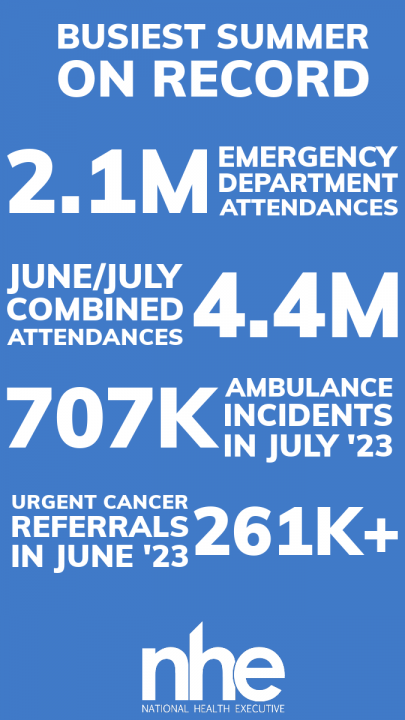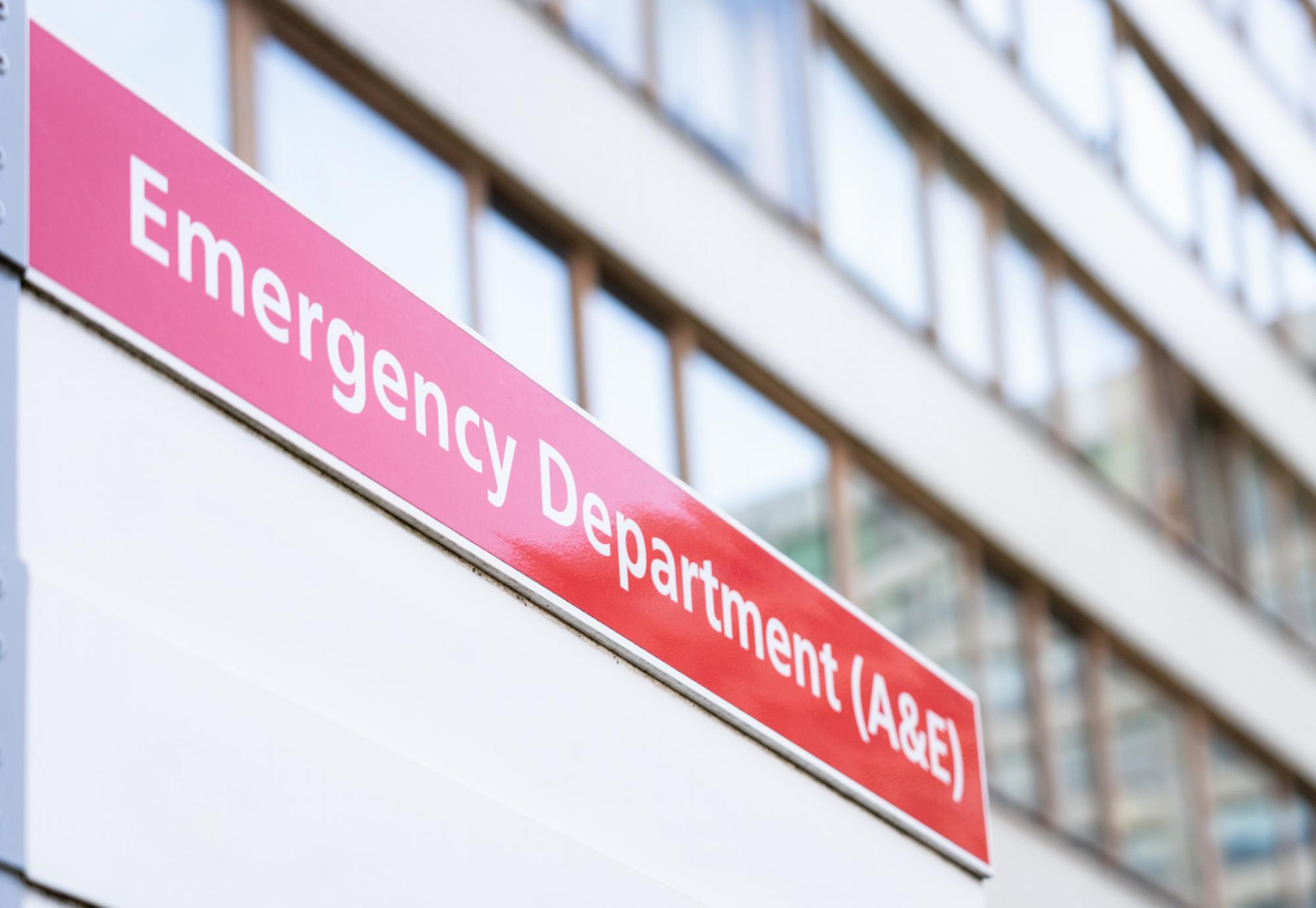NHS England has announced that this summer is on track to be the busiest on record for the service.
With new data being published around the number of attendances in emergency departments, it has been revealed that departments experienced their second busiest July ever this year. That month period saw 2.1 million attendances across emergency departments, bringing the figure for June and July combined to 4.42 million. This figure is 42,500 more than the previous high, which was in 2022.

Alongside emergency departments, ambulance services faced their busiest month since May 2022, with 707,000 incidents, whilst cancer checks also brought about a new record. More than 261,00 urgent referrals were faced in June, whilst the number of people that began treatment for cancer hit near-record figures of 29,479.
NHS England’s National Clinical Director for Urgent and Emergency Care, Professor Julian Redhead, said yesterday:
“Today’s data is a reminder of the significant pressure on staff with this summer currently on trajectory to be the busiest in NHS history, all wile industrial action continues to disrupt services.
“Despite this, hardworking staff are delivering improvements in urgent and emergency care waiting times while also tackling the backlog by doing more tests and checks than any July on record and seeing record numbers of people with suspected cancer.
“While tomorrow the NHS will see a fifth round of junior doctor strike action with thousands of appointments and procedures likely to be postponed, the NHS will need to prioritise emergency care once again.
“So please continue to use 999 if it is a life-threatening emergency and 111 online for any other health concerns, while GPs and pharmacies are also unaffected by strikes.”
Work to reduce waiting times for patients has continued with the number of people that are being forced to wait more than a year for treatment dropping in June, whilst the NHS has also launched a new tool that allows members of staff to view and add available treatment slots in hospitals around the country, including in the independent sector. This comes as part of the Elective Recovery Plan.
Image credit: iStock



















